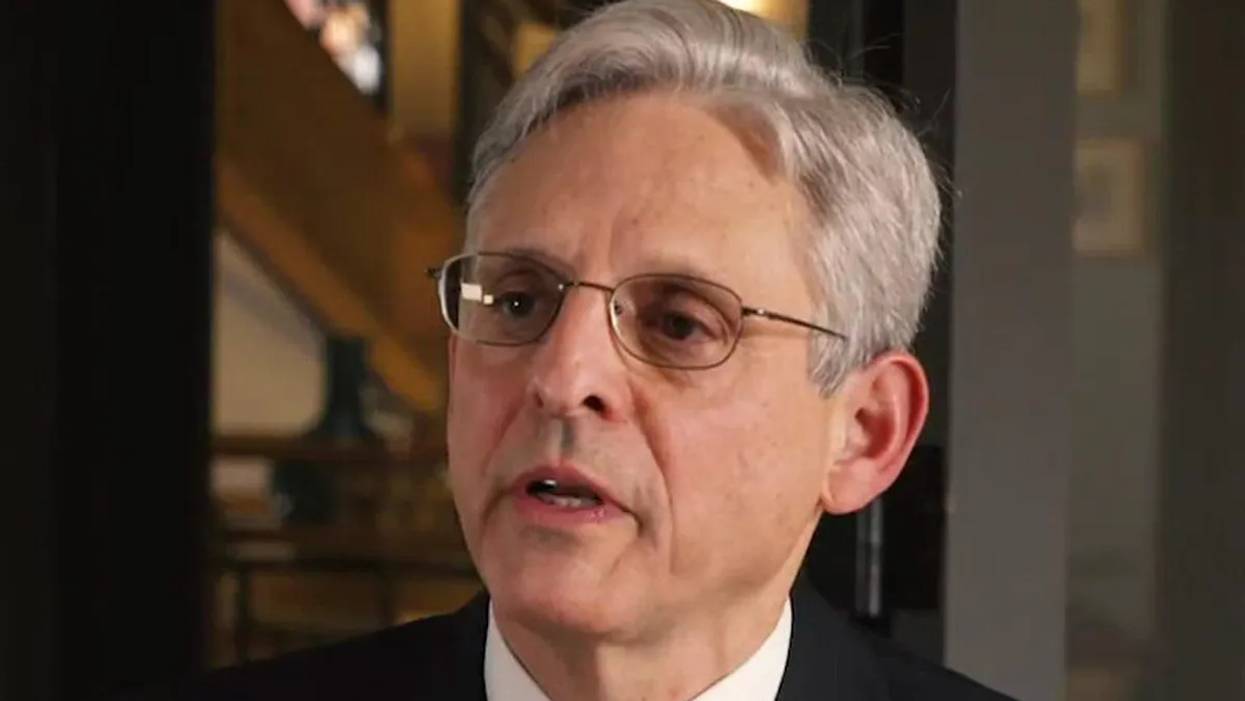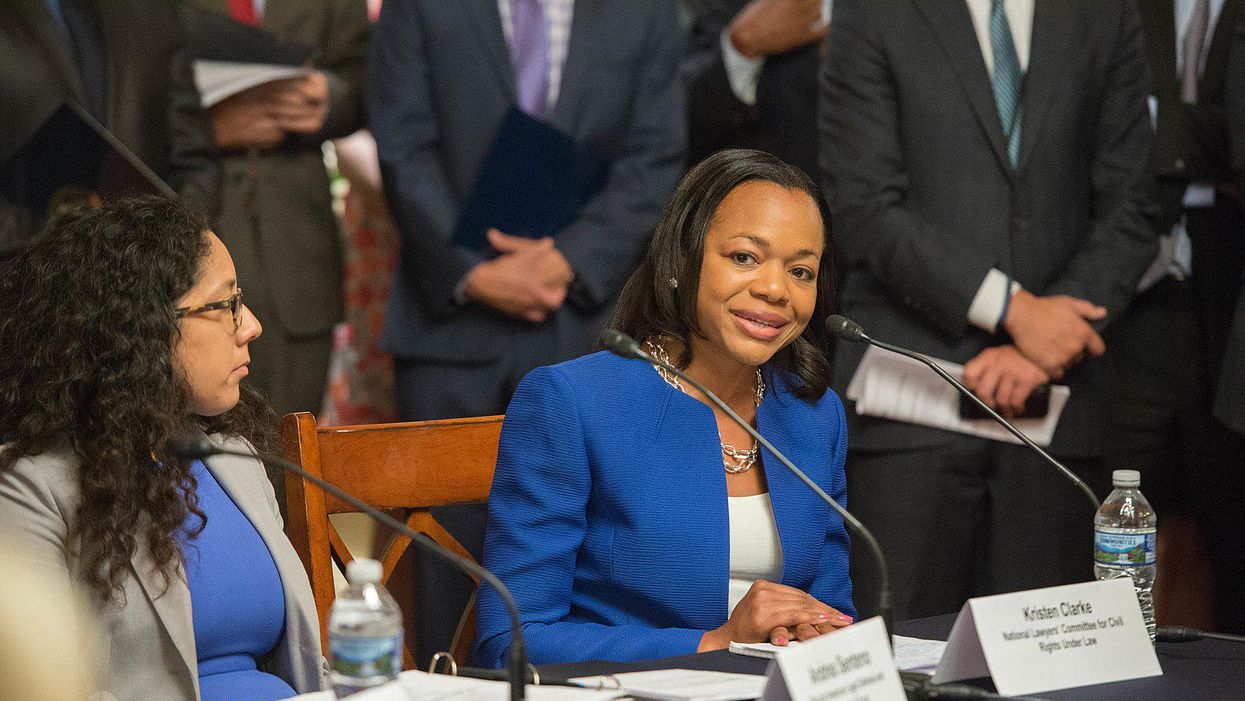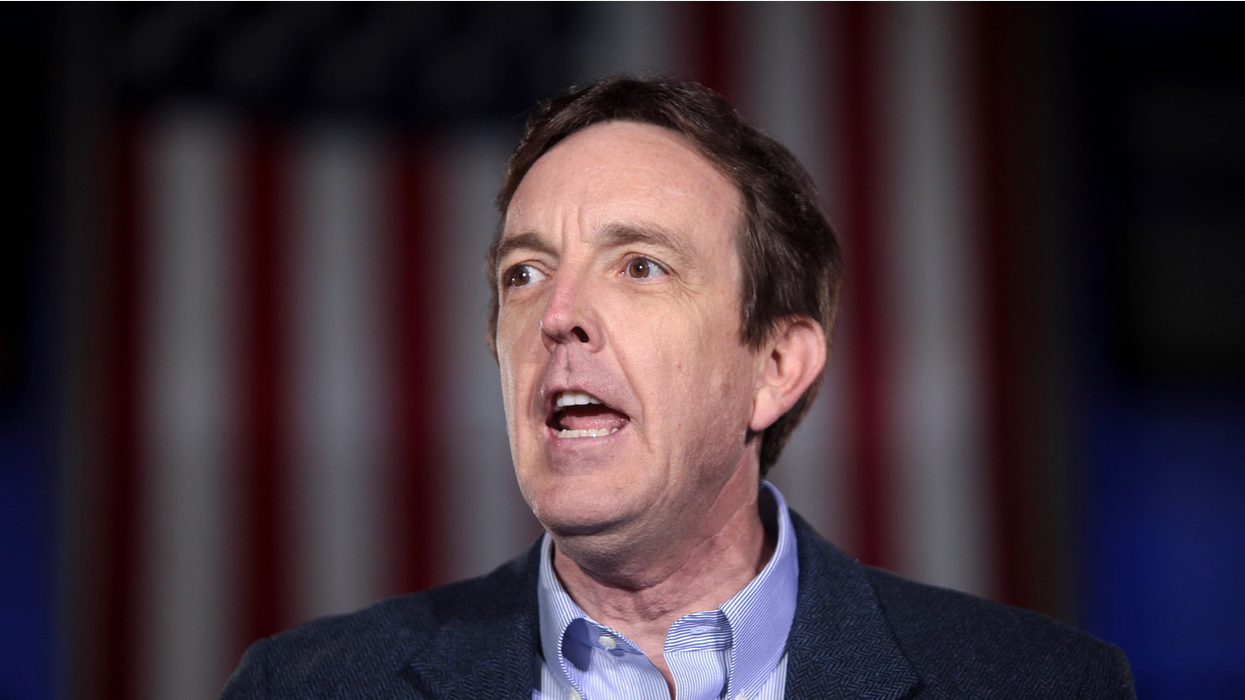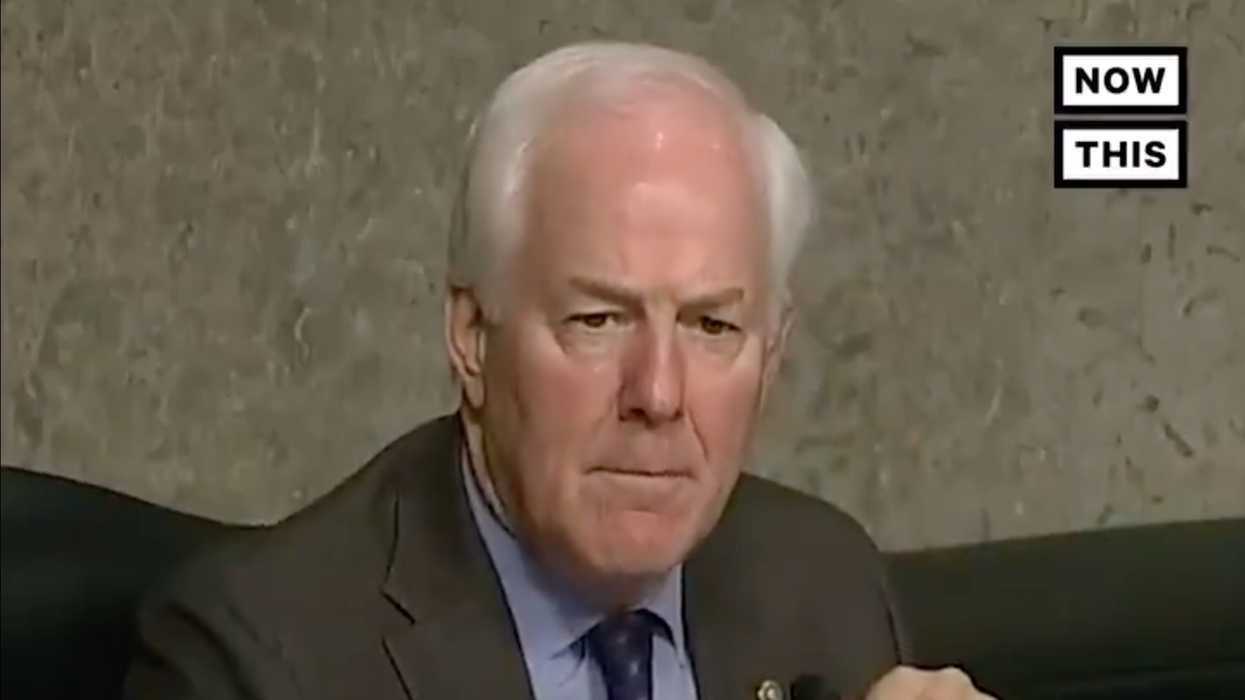Garland Fulfilling Commitments On Civil Rights, Police Reform
Reprinted with permission from Daily Kos
The Department of Justice had the kind of pro-police reform week that doesn't happen every year. In a seven-day period, Attorney General Merrick Garland announced a ban on chokeholds and no-knock warrants, an overhaul on how to handle law enforcement oversight deals, and a promise to make sure the Justice Department wasn't funding agencies that engage in racial discrimination.
"This was a big week for civil rights at the DOJ," Sherrilyn Ifill, president of the NAACP Legal Defense and Educational Fund, shared in a thread about the progress on Twitter Thursday. "Proof that elections matter and that having civil rts attys in DOJ leadership matters. Let me walk you through what's happened in just this one week. It's actually astounding."
The first step forward on Ifill's list came in the form of a review of the Department of Justice's use of monitors who oversee implementation of consent decrees. The New York Timesdefined the legal mechanisms as "court-approved deals between the Justice Department and local governmental agencies that create a road map for changes to the way they operate." Garland rescinded Trump-era policy that blocked consent decrees from addressing police misconduct in April. "This has been a concern among community groups in cities where police dept's are covered by consent decrees after DOJ investigations," Ifill tweeted. Garland announced on Monday 19 actions the department will take to address that concern.
"The department has found that – while consent decrees and monitorships are important tools to increase transparency and accountability – the department can and should do more to improve their efficiency and efficacy," Garland said in a news release. "The Associate Attorney General has recommended – and I have accepted – a set of 19 actions that the department will take to address those concerns." Those actions include capping monitoring fees on consent decrees, requiring stakeholder input, imposing specified terms for monitors, and requiring a hearing after five years "so that jurisdictions can demonstrate the progress it has made, and if possible, to move for termination."
"Consent decrees have proven to be vital tools in upholding the rule of law and promoting transformational change in the state and local governmental entities where they are used," Associate Attorney General Vanita Gupta said in the news release. "The department must do everything it can to guarantee that they remain so by working to ensure that the monitors who help implement these decrees do so efficiently, consistently and with meaningful input and participation from the communities they serve."
That was only Monday.
Kristen Clarke, who leades the Justice Department's civil rights division, announced on Tuesday that the Justice Department has launched an investigation into allegations of unconstitutional mistreatment of prisoners in Georgia, according to The New York Times. "Under the Eighth Amendment of our Constitution, those who have been convicted of crimes and sentenced to serve time in prison must never be subjected to 'cruel and unusual punishments,'" Clarke said in her announcement of the investigation.
At least 26 people died last year by "confirmed or suspected homicide" in Georgia prisons, and 18 homicides have been reported this year in the state. That's not including those who have been left to die in horrible conditions during the COVID-19 pandemic. Inmates facing that threat rioted at Ware State Prison last August in a viral uprising. Two inmates at the facility had died of COVID-19, and 22 prisoners and 32 staff members had tested positive for the virus during the time of the riot, according to Georgia Department of Corrections recordsobtained by The Atlanta Journal-Constitution.
"This is huge. The humanitarian crisis in southern prisons is a critically important issue," Ifill tweeted of Clarke's announcement."Then the DOJ announced that it will ban the use of no-knock entries and chokeholds by federal law enforcement officers (except in cases where deadly force is authorized - more to probe abt the exception to be sure) ."
The decision follows the deaths of Breonna Taylor and George Floyd. Taylor, a 26-year-old emergency medical technician, was sleeping when officers executing a no-knock drug warrant smashed in her door after midnight and shot her at least eight times in her Louisville, Kentucky, home on March 13, 2020. Floyd was killed on May 25, 2020 when a white Minneapolis police officer kneeled on his neck for more than nine minutes despite Floyd saying repeatedly that he couldn't breathe. "Building trust and confidence between law enforcement and the public we serve is central to our mission at the Justice Department," Garland said in a news release. "The limitations implemented today on the use of 'chokeholds,' 'carotid restraints' and 'no-knock' warrants, combined with our recent expansion of body-worn cameras to DOJ's federal agents, are among the important steps the department is taking to improve law enforcement safety and accountability."
Also on Ifill's list of Justice Department wins is a review to make sure it isn't awarding grants to law enforcement agencies that engage in racial discrimination. That review could have wide-reaching effects, touching education, health care, transportation, pretty much every facet that receive federal funding, The New York Times reported. "Approximately $4.5 billion in federal funding flows through the department to police departments, courts and correctional facilities, as well as victim services groups, research organizations and nonprofit groups," Times writer Katie Benner wrote. "All of these organizations, not just police departments, could be affected by this review."
Ifill tweeted it's been a long time since she's seen a week like last week, with the Justice Department announcing multiple measures to reform criminal justice "each with the potential to result in fundamental shifts in longstanding discriminatory practices." "I'm remembering AG Garland's confirmation testimony in which he explained that he needed AAG @vanitaguptaCR & Asst AG for Civil Rights @KristenClarkeJD on his team in particular to help him with critical areas of the work with which he does not have experience.
"This week feels like an important return on his commitment to assembling this rich team."
Kristen Clarke, a longtime voting rights advocate, was confirmed on May 25, making her the first woman and the first Black woman to lead the U.S. Department of Justice's Civil Rights Division since it was created in 1957. When Gupta was confirmed on April 21, she became the first woman of color and the first civil rights lawyer to serve as associate attorney general.
Ifill went on to tweet: "For many I know this all may seem slow and clunky - it is after all, the government. I'm gratified to see that they're using the tools they have to undertake measures civil rights groups have been asking for for years. And they're working carefully and smart."












